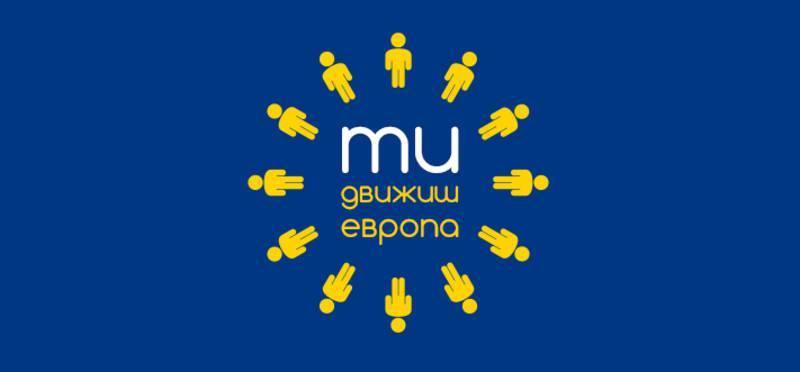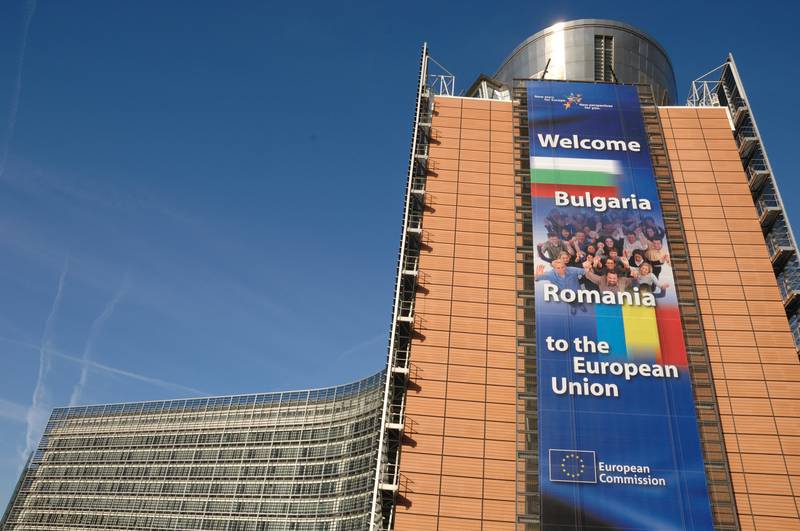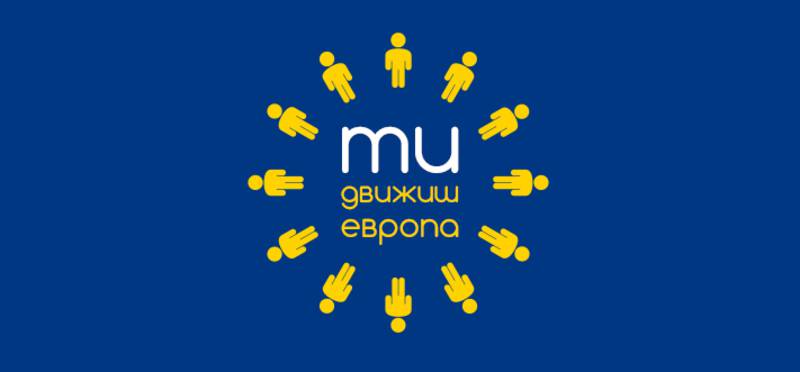EU Can Be Evaluated only after It Is Lost
Adelina Marini, May 5, 2014
The benefits from the EU will become clear only when we lose the EU. Currently, more visible are the negatives from Bulgaria's membership in the Union because the country does not succeed to adapt sufficiently well to what the Union offers, said Yavor Syderov, a political analyst, during a debate on April 16 about the benefits and damages from Bulgaria's EU membership organised by MoveBG, a civil platform for debate [the attached video is only in Bulgarian]. According to him, the EU is something like a magnifying glass which magnifies the advantages and flaws of the member states. Bulgaria, however, has a very utilitarian view about the Union. Why have we come to asking the question about the benefits and damages from the EU? Because, Yavor Syderov believes, the EU happened to Bulgaria. A very powerful geopolitical dead ground sea swell dragged the country into the EU without it being able to understand what exactly is going on. Growingly untrue is the claim that Bulgaria made a civilisation choice back then, he commented.
Kaloyan Symeonov, an economist and professor of European affairs in the Sofia University St. Kliment Ohridsky, who is author of the book "The path toward the euro area - to sail or not to sail", said that in Bulgaria there is almost no talk about policies, but rather about EU funds. According to him, one of the biggest benefits from EU membership is protection of rights, reduction of roaming costs and the possibilities for education. Nevertheless, in Bulgaria, the EU continues to be perceived as an unidentified object. This is the Union's biggest problem, Yavor Syderov, the political analyst, added. He said the next crisis was very possible to be purely political not economic or financial. The EU has been a political union long before it became economic one, he believes and quoted as a proof the recent admission by President Jose Manuel Barroso that Bulgaria and Romania were adopted for political reasons to avoid leaving them in Russia's area of influence.
The problem is, however, that the Union is suffering from an identity crisis which is the root cause for a large part of the problems. The Union behaves like a boy standing in front of the mirror, dressed in its mom's dressing gown and in her high heel shoes. If an answer to the question "What is the EU actually?" is not found any time soon, there is a risk of entering into a very serious crisis of representation against the backdrop of which the problems with political representation on local Bulgarian level would seem insignificant, Yavor Syderov continued. Ivaylo Yaydzhiev, also a political analyst and activist in the group for equal student rights for Bulgarians and Romanians in Britain, agrees and recalls that when something is good the prime minster comes out and says that it is the result of the government's efforts and the state at large. When something is wrong, though, this same premier says that it is the result of Brussels's regulations - the famous syndrome of national vs. supranational in the EU.
During the debate, which lasted more than an hour, the issue of the euro area was cursorily touched. Some statements on the issue were a demonstration of the currently prevailing attitudes in Bulgaria that the eurozone crisis is caused mainly by the old member states and the new ones should not join and be responsible for something they are not to be blamed for nor, them being poor, should they be expected to pay for other people's mistakes. This is a widespread perception even among the relatively well informed part of the Bulgarian society. Kaloyan Symeonov is of the opinion, though, that euro area membership should not be delayed because the costs of non-membership in the long-term (more than 10 years) will be much higher. But in the short-term (2-3 years), there is no need to make concrete steps because, at this stage, it is not quite clear what kind of a community Bulgaria would actually join. Everything is changing very dynamically and rapidly, he added. The issue of Bulgaria's membership in the common currency was a major one during another debate this website moderated and during which a call was made for a road map to be drawn for adoption of the common currency.
 Apart from the euro area, Bulgaria is facing other challenges in the future, too. The biggest of which, according to Yavor Syderov, is the fast completion of the negotiations with the US on a free trade agreement (TTIP). Although it will undoubtedly bring huge benefits, there are areas in which Bulgaria is not well prepared to be competitive. Those are the problems with copyrights and intellectual property, which Mr Syderov explained were "a traditionally painful issue". Another topic is fracking, which Bulgaria currently resists, but with the signing of the agreement the issue will again be brought on the agenda. Third is agriculture. He called the American agricultural sector "boundless and extremely powerful", which will be a huge problem for the Bulgarian farmers.
Apart from the euro area, Bulgaria is facing other challenges in the future, too. The biggest of which, according to Yavor Syderov, is the fast completion of the negotiations with the US on a free trade agreement (TTIP). Although it will undoubtedly bring huge benefits, there are areas in which Bulgaria is not well prepared to be competitive. Those are the problems with copyrights and intellectual property, which Mr Syderov explained were "a traditionally painful issue". Another topic is fracking, which Bulgaria currently resists, but with the signing of the agreement the issue will again be brought on the agenda. Third is agriculture. He called the American agricultural sector "boundless and extremely powerful", which will be a huge problem for the Bulgarian farmers.
The EU membership should be viewed much more in-depth than purely in monetary or fiscal union terms, which are, too, very important, he concluded. The EU funds should also be reviewed because they create a specific type of clientelism. It is a very worrying development because it does not contribute to the country's economic development but creates dependencies without establishing institutions or instruments for development without it. Another challenge for Bulgaria is the growing competition in the higher education. In Bulgaria, there are too many universities - 51 - which creates hidden unemployment against the backdrop of the demographic crisis and the growing number of students who prefer to study elsewhere in the EU. Unless urgent radical reforms are undertaken to reduce the number of universities, focus on innovation and reform the labour market, in Bulgaria "something like a Holocaust of the higher education" is to come, was Mr Syderov's opinion.
The debate about the benefits and damages of membership was part of MoveBG's European agenda "You move Europe" which euinside is a strategic media partner to. This website's contribution to the discussion was with the article "How Much Europe Gives Us and How Much Does It Cost Us?". The culmination of the agenda will be on May 16th when a conference [in Bulgarian] "Visions of Europe" will take place in Sofia. euinside will be a moderator of the second panel "Visions of Europe: the geopolitical aspect".
 | © European Commission
| © European Commission  | © MoveBG
| © MoveBG